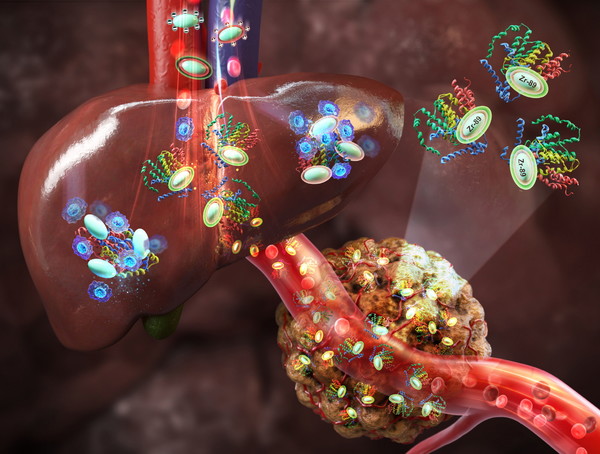A research team at Korea Atomic Energy Research Institute (KAERI) has developed a nanomedicine that can be used as a carrier delivering vaccine and anticancer drugs without accumulating in the liver.

The state-run institute said Wednesday that the iron oxide nanomedicine, developed by KAERI’s Advanced Radiation Technology Institution, reaches tumors but does not pile up in the liver using a cyclotron.
Nanopharmaceuticals are drugs that diagnose and treat diseases using nano-sized materials. Nanomaterials effectively diagnose and treat tumors as they can efficiently deliver drugs to specific parts of the body by changing their intrinsic properties. However, there has been a limitation in that a significant amount of the administered nanomaterials accumulate in the liver due to the immune response and cannot fully reach the tumor.
The research team, led by Dr. Park Jeong-hoon, stably incorporated the diagnostic isotope zirconium-89 (Zr-89) to the inside of iron nanoparticles sized between 100 and 200 nanometers and made the surface charge neutral by coating with polymers.
The nanomaterials passed through the liver and reached the tumor region.
Existing Zr-89 nanoparticles, when charged negatively or positively, are sensitive to aggregation in biological fluids by high surface reactivity with serum proteins, increasing the size. The grown particle is then moved to the liver by macrophage, a type of immune cell, accumulates in the liver.
However, the newly developed nanoparticles are close to neutral charge via surface modifications with polymer coating, reducing the binding to serum proteins and allowing them to reach the tumor region.
“We have a well-established facility for producing cyclotron-based Zr-89 and evaluating biomaterials, so we expect the study to extend and vitalize further,” said Lee Nam-ho, director of the Advanced Radiation Technology Institution.
Professor Kang Keon-wook of the Institute of Radiation Medicine at Seoul National University also said, “Researchers can use nanomaterials as drug-deliverer of vaccines and anticancer drugs. The potential for Zr-89 nanomaterial developed by KAERI for medical purposes is great as they confirmed that it does not accumulate in the liver.”
The study has been recognized by the Royal Society of Chemistry in the U.K. for its excellence and was selected as the cover of the Journal of Materials Chemistry B. The results were published online early this month.

